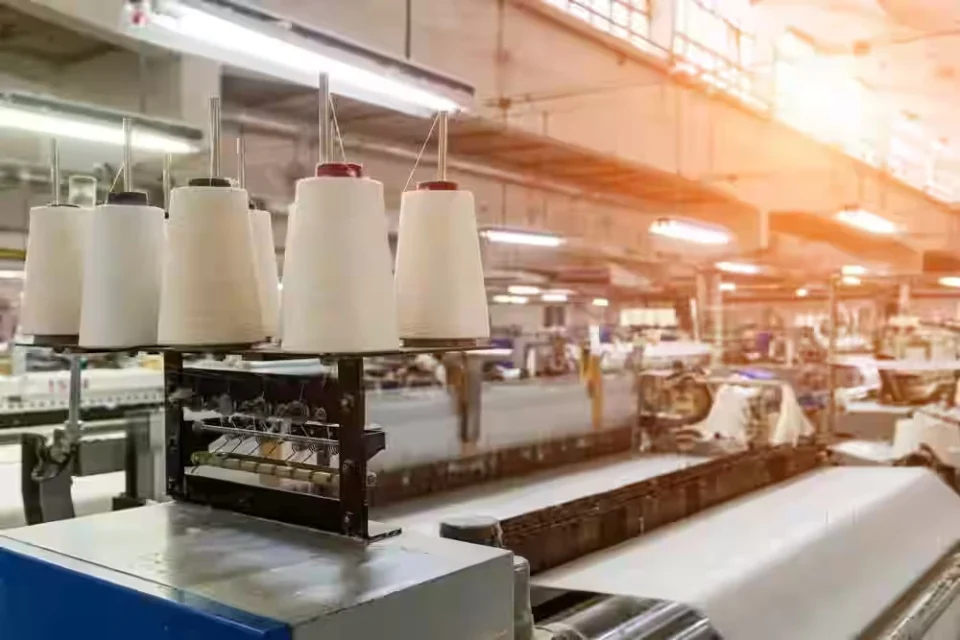Tirupur, known for its remarkable contributions to the global textile industry, is evolving into a world leader in sustainable textile and apparel manufacturing. The Tirupur Exporters Association (TEA), under the leadership of President Mr. K. M. Subramanian, is steering this transformation with a vision to enhance both its export capabilities and its commitment to environmentally conscious production. This article highlights Tirupur’s growth as a sustainable manufacturing hub and the initiatives shaping its global influence.
Growth in Exports and Strengthening Ties with Surat
Tirupur continues to see robust growth in the Ready-Made Garments (RMG) sector, with exports in August showing a 13% increase year-on-year and knitwear exports rising by 17.5% in July 2024. This surge reflects the region’s increasing capacity to meet global demand while maintaining its sustainability commitments.
In an effort to further diversify and strengthen production capabilities, Mr. K. M. Subramanian, alongside TEA representatives, visited Surat to engage with entrepreneurs and explore collaboration opportunities in manufacturing Man-Made Fibre (MMF) garments. This strategic partnership is set to benefit both clusters by leveraging Surat’s MMF production expertise and Tirupur’s established garment manufacturing infrastructure. During their visit, Surat’s business leaders expressed admiration for Tirupur’s manufacturing capacity and its focus on green garment production, highlighting the potential for increased collaboration to boost exports from both regions.
Leading Sustainable Practices in the Textile Industry
Tirupur has made significant strides in adopting environmentally sustainable practices, positioning itself as a model for the global textile industry. Among its key initiatives, the industry has implemented Zero Liquid Discharge (ZLD) systems, which recycle 120 million liters per day (MLD) of water, making Tirupur the first region globally to achieve such a feat. Additionally, the cluster’s investments in renewable energy—wind and solar power—surpass its energy requirements by eight times, further reinforcing its commitment to green production.
Sustainability has been deeply integrated into the region’s development strategy, with efforts focused on afforestation, rainwater harvesting, and waste recycling. Tirupur’s adherence to Environment and Sustainability Governance (ESG) principles is driving the industry towards circularity, where waste materials are reused and recycled to reduce environmental impact.

Collaborative Growth for a Sustainable Future
To achieve the TEA’s ambitious goal of reaching a turnover of Rs. 1 lakh crore, collaboration with regions like Surat is crucial. Currently, Tirupur’s textile industry boasts an export turnover of Rs. 35,000 crore, coupled with a domestic trade value of Rs. 25,000 crore, contributing to a total volume of Rs. 60,000 crore. As global demand shifts towards MMF products, the integration of Surat’s MMF production expertise into Tirupur’s manufacturing ecosystem promises to enhance the product diversification needed to meet international market demands.
Moreover, leading global fashion brands are increasingly committing to net-zero targets, underscoring the importance of sustainability in the international fashion industry. Tirupur is well-positioned to cater to this demand through its ongoing investments in sustainable energy, water management, and eco-friendly production processes.
Pioneering a Circular Economy
Tirupur’s transformation into a global hub for sustainable textile and apparel manufacturing is a testament to the vision and dedication of its leadership, industry partners, and workforce. As the world shifts towards a circular economy, Tirupur stands at the forefront, with its exemplary green initiatives and partnerships with regions like Surat poised to boost its export capacity. The future of textile manufacturing is sustainable, and Tirupur is leading the way.
With continued support from the government in the form of sustainable finance, particularly for its MSME units, Tirupur is well on its way to achieving its goals and setting a global benchmark for sustainability in the textile industry.

